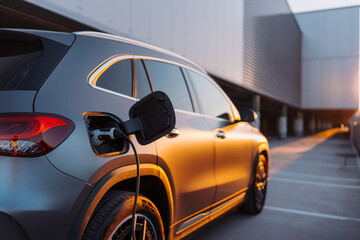Electric vehicles (EVs) are quickly becoming the future of transportation, and this shift has significant implications for the automotive industry. With increasing concerns about environmental impact and a growing demand for eco-friendly solutions, car manufacturers are racing to meet the needs of consumers who are more conscious about sustainability. EVs offer numerous advantages, including lower operating costs, fewer emissions, and reduced dependence on fossil fuels. As battery technology improves and charging infrastructure expands, more drivers are making the switch to electric cars, which is reshaping the automotive landscape.
Why Automakers Are Embracing Electric Cars
The transition to electric cars is not just about meeting consumer demand; it’s also driven by regulatory pressures and technological advancements. Governments around the world are implementing stricter emissions standards, forcing automakers to find greener alternatives to traditional internal combustion engines. As a result, companies like Tesla, General Motors, and Ford are investing heavily in electric vehicle production. Electric cars require fewer moving parts, leading to lower maintenance costs for consumers. This aspect is proving to be a selling point, as many people are looking for long-term cost-effective solutions for their vehicle needs.
Battery Technology and Its Role in EV Development
One of the key factors driving the rise of electric vehicles is advancements in battery technology. The development of lithium-ion batteries, which are lighter, more powerful, and longer-lasting than their predecessors, has revolutionized the electric vehicle market. As the cost of battery production continues to drop, EVs are becoming more affordable, making them accessible to a larger segment of the population. Innovations in fast-charging technology are also reducing the time it takes to recharge EVs, further enhancing their appeal. With these breakthroughs, the future of electric cars looks brighter than ever.
Consumer Adoption of Electric Vehicles
While the shift toward electric vehicles is gaining momentum, consumer adoption is still a work in progress. High initial costs have been a barrier for many, though government incentives, tax rebates, and lower long-term operating costs are helping to make EVs more accessible. As more people experience the benefits of driving an electric car, whether it’s the smooth, quiet ride or the environmental benefits, the demand is expected to continue to rise. Automakers are also expanding their range of electric vehicles to cater to various consumer preferences, from compact city cars to larger SUVs and trucks.
Challenges in Expanding EV Infrastructure
One of the most significant hurdles in the widespread adoption of electric vehicles is the lack of charging infrastructure. Though the number of charging stations is steadily increasing, there is still a gap between the demand for EVs and the availability of charging facilities, especially in rural areas. This creates a barrier for consumers who are hesitant to purchase an electric vehicle due to concerns about range anxiety. For EV adoption to fully take off, governments, private companies, and automakers must work together to expand and improve the charging network, making it as convenient as refueling a traditional gasoline-powered car.
The Impact of Electric Cars on the Environment
One of the most compelling reasons to switch to electric vehicles is the positive impact on the environment. Electric cars produce no tailpipe emissions, which means they do not contribute to air pollution in the way conventional vehicles do. Additionally, EVs are often powered by renewable energy sources like solar or wind, further reducing their carbon footprint. With climate change being one of the most pressing global challenges, the shift toward electric cars represents a significant step in mitigating the effects of global warming. As more consumers adopt EVs, the overall environmental impact will continue to improve.
Conclusion
The rise of electric vehicles is a game-changer for the automotive industry, offering numerous environmental and economic benefits. While challenges such as charging infrastructure and initial costs remain, the advancements in battery technology and the growing demand for greener transportation solutions are driving the shift toward a cleaner, more sustainable future. As more automakers invest in electric car production and governments push for stricter emissions standards, the automotive industry will continue to evolve. For consumers, the future of driving is electric, and it holds the promise of a cleaner, more cost-effective way to travel.
